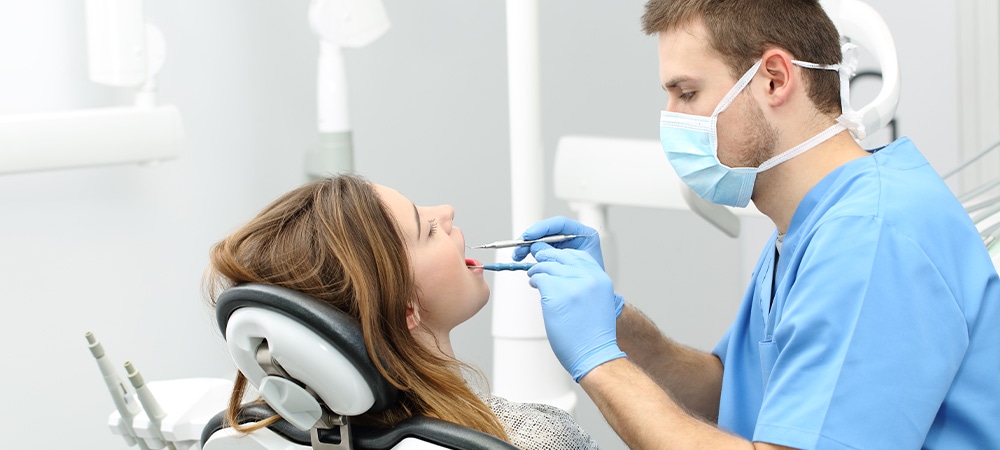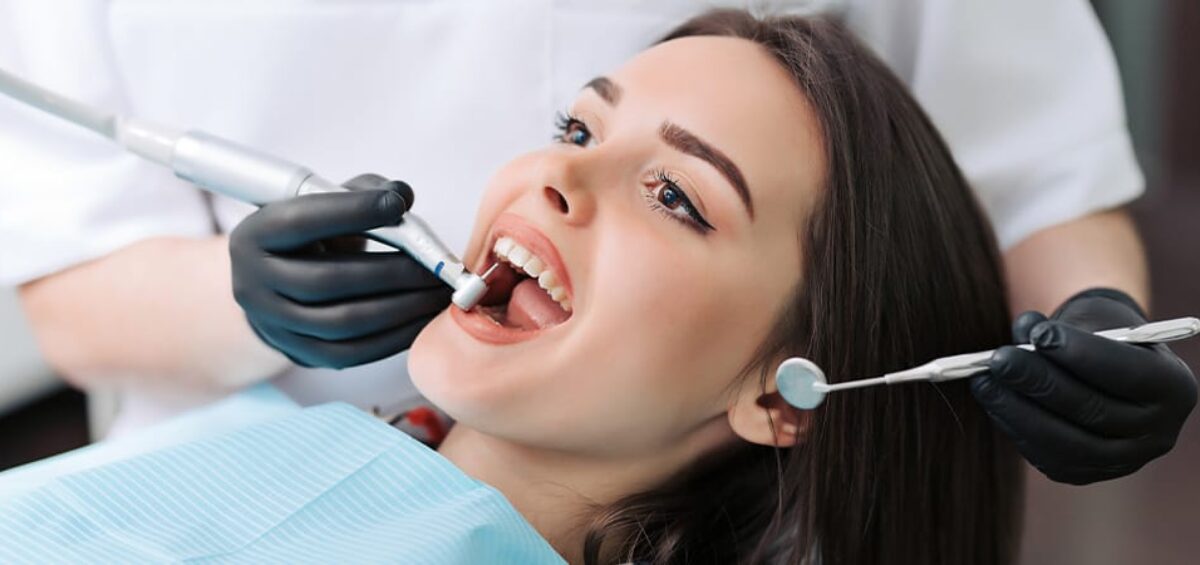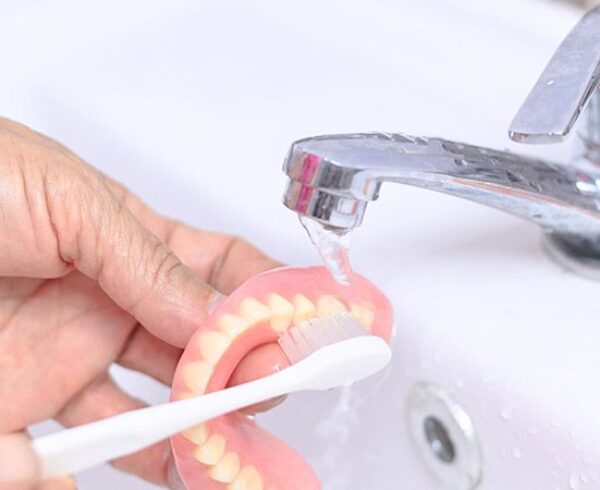Periodontitis, or periodontal disease, is characterized by gum and bone tissue inflammation. If untreated, the disease can lead to tooth loss and chronic inflammatory diseases like diabetes and cardiovascular disease, for example. Thankfully, professional teeth cleaning in Toronto can help you prevent this disease.
While teeth cleaning promotes overall dental health, other benefits include a brighter smile and fresher breath. The pricing of teeth cleaning in Toronto ranges between $75 and $200 without X-rays. However, the teeth cleaning cost can be as high as $500 to $4,000 for a full mouth debridement.
If you have never had a professional clean your teeth, this article is for you. Here, we detail the cost of teeth cleaning in Toronto and the benefits of professional dental cleaning.
Benefits of Professional Teeth Cleaning
The cost of teeth cleaning in Toronto is a wise investment in your dental health and overall well-being. Here are the benefits of regular teeth cleaning.
- Plaque and Tartar Removal: Even with regular brushing and flossing, plaque can accumulate on teeth, hardening into tartar. Professional cleaning removes these stubborn deposits, preventing their progression to gum disease and tooth decay.
- Cavity Prevention: Plaque buildup is a primary cause of tooth decay. By removing plaque and tartar during professional cleanings, you can significantly reduce the risk of cavities. Additionally, dental professionals can identify early signs of cavities and provide preventive measures to stop their progression.
- Fresh Breath: Bacteria in plaque and tartar can contribute to bad breath. Removing these bacteria through professional cleaning can improve breath odour, promoting fresher breath and increased confidence.
- Stain Removal: Certain foods, beverages, and habits like smoking can cause tooth discolouration over time. You can remove surface stains with teeth cleaning, resulting in a brighter and more aesthetically pleasing smile.
- Detection of Oral Health Issues: During a dental cleaning, the dentist or hygienist carefully examines your mouth for signs of oral health issues such as cavities, oral cancer, and other abnormalities. Early detection allows for timely intervention and treatment, preventing further complications.
- Preservation of Overall Health: Regular dental cleanings may help reduce the risk of certain systemic conditions, including heart disease, stroke, diabetes, and respiratory infections.
- Cost Savings: Preventive dental care, including professional cleanings, can help avoid costly treatments for advanced dental problems in the future. By investing in regular cleanings, you can potentially save money on extensive dental procedures down the line.
- Overall Well-being: A healthy mouth contributes to well-being and quality of life. With clean teeth and gums, you can enjoy improved oral function, comfort, and confidence in your appearance, leading to better self-esteem and overall satisfaction.
Related Article: How Much Does It Cost for Tooth Filling?

What Type of Dental Cleaning Should You Get?
When it comes to professional teeth cleaning, there are several procedures dentists commonly recommend. How much teeth cleaning costs depends on the type you’re getting.
Regular cleaning
This option is ideal for those with healthy gums, minimal gingivitis, and no signs of bone loss. Regular cleaning removes tartar, plaque buildup, and bacteria that may have accumulated on the teeth over time.
Deep cleaning
This type of cleaning involves scaling and planning, and dentists typically recommend it for those diagnosed with gum disease. The process entails using dental instruments to clean the space between the gums and the teeth where bacteria may have begun to form. That said, deep cleaning can be painful and may require a local anesthetic.
Periodontal cleaning
Dentists commonly recommend it as a maintenance procedure for those already diagnosed with periodontal disease. This cleaning entails removing plaque and tartar from the gum line, which, in turn, helps prevent tooth loss.
Professional Dental Cleaning Costs in Toronto
Professional teeth cleaning can vary depending on the cleaning you need. While most insurance plans will cover regular cleanings at 100%, some insurance may have a maximum dollar amount that you can apply toward cleanings.
This is especially true of deep cleanings, where the average yearly maximum is $1,000 to $1,500. Let’s take a moment to address teeth cleaning costs associated with specific types of cleaning:
Regular cleaning
without X-rays can cost $75 to $200, depending on the dental practice. However, statistical data shows the median cost to be about $80 to $175. If the regular cleaning includes X-rays, you can expect those costs to be slightly higher, typically $100 to $300.
Again, statistical data shows that the median cost for most dental patients is $114 to $320.
Deep cleaning
This is considerably more expensive than regular cleaning as it involves scaling and root planning. It is worth noting that this procedure is done one quadrant at a time and can cost $100 to $450 per quadrant.
Full-mouth debridement, which consists of all four quadrants, can cost anywhere from $500 to $4,000. Of course, these costs can increase depending on the cleaning involved and whether or not you need antibiotics. If you do, there is an additional cost of $35 to $85 per tooth.
Furthermore, on average, insurance will cover some of the costs associated with deep cleaning. However, dental cleaning costs without insurance are about $360 to $437.
Full-mouth debridement
Full-mouth debridement may be necessary in some cases, especially if there is excessive plaque, tartar, or bacteria buildup. If you’re unfamiliar with this procedure, it entails cutting away buildup that has gathered underneath or around the gum line.
As far as costs, you’re looking at about $74 to $150 with insurance and $390 to $3,800 without insurance. However, the median cost for most patients is $1,257.
Periodontal maintenance
This can be very expensive, with an average cost of $3,600 for a full-mouth treatment, including anesthetics. After the initial periodontal treatment, maintenance treatments will typically be about $115 per treatment.
Related Article: What’s Better: Dental Implants and Partial Dentures?

Professional Teeth Cleaning at Osmin Denture Clinic
The condition of your teeth can play a critical role in the type of treatment you need and the cost. Nonetheless, taking care of your teeth should be a top priority as it will help avoid dental caries and other dental problems. If you’re worried about the cost, this article discusses the price breakdown for teeth cleaning.
At Osmin Denture Clinic, we offer professional teeth cleaning services, root canals, tooth extractions and immediate dentures’ If you’re in Ontario and the Richmond Area, reach out to us for all-around oral care services. Contact us at 647-294-3310.


